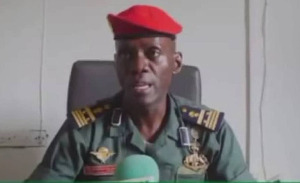The regional director of Camerounaise Des Eaux for the South West, Joseph Kenmogne, has stated that, the acute water shortage which plagues the city of Limbe and the region as a whole is due to the indiscriminate manner in which consumers use water.
While suggesting how best the problem can be solved, he throws more light on the ongoing nation-wide campaign aimed at socially connecting some 25,000 households.
He spoke to The Sun’s Noela Bisong and Honorine Nomo saying Thank you Sir for accepting to talk to The Sun Newspaper.
Q: The problem of water shortage in the city of Limbe seems to be stagnant. Are you aware of this situation and what are you doing to solve this problem?
A: Yes, truly we are aware of this problem. Water shortage is a very crucial problem, not only here in Limbe, but also in the country as a whole. In Limbe however, the problem is being solved gradually. Right now, there is a better supply than a few months ago. We are working on improving the system of the supply of water.
Q: How is this problem actually being solved?
A: We used to have so many leakages in town, but we have succeeded in fixing the big ones which were making us lose much water. So, we pray that those who see leakages should immediately report it to us, so that they can be fixed, and people will have enough quantity supplied to their homes. I cannot say that we really lack water in Limbe, it is the management, which is the problem.
Q: Some consumers in the city are worried over high bills, irrespective of the frequent cuts, shouldn’t the situation be the other way round?
A: Concerning cuts and complains of high bills, the issue is that, since we ration water for everybody to benefit, some people forget and leave taps open during cuts and when water comes, it overflows. So much water is wasted this way, thus resulting to high bills.
Sometimes, what is wasted is more than what they use, due to lack of control at their level.
Q: What about the regional capital Buea? Its situation is still a pathetic one even after so much was done during the reunification celebrations?
A: Buea is a difficult area, in the sense that we collect water from the mountain, and during the dry season, this water dries out. We have a water plant at the mountain which is used to produce 2,500 cubic metres of water a day, but right now, it produces only 800 cubic metres. That is why there is a big programme for Buea; it is not at the regional level, but it is being taking care of at the head office.
Q: There is this ongoing social connection campaign to connect 25,000 homes, what is it all about?
A: Yes, thank you very much for the question. The government is making this effort in an attempt to combat poverty, so they want poor families to benefit from a social connection.
A social connection means that charges are insignificant compared to what is to be actually paid. A connection which normally costs about FCFA 100,000 is being done at FCFA 12,000. So, it is a social approach by the government to improve the standard of living of citizens, reason why they are giving the connection to those who cannot normally afford it.
Q: What are the criteria for the selection of those to benefit from this programme and what are the processes involved?
A: The issue here is that, those to be connected must be living in a certain environment, and also the kind of house in which one lives in. For example, if your house and environment is very comfortable, this programme is not for you, it is mainly for people with simple houses and who are in need of water.
The programme is on-going and we are already receiving applicants. When they come, we explain to them the conditions and process involved and then we go to their neighbourhoods to assess how the connection can be made.
A message to potential customers We are calling on those who do not have water in their houses and who feel they need it, to come to us, and we will explain to them the advantages of this on-going campaign.
The programme will run for about four months, but it is a nationwide campaign and specific numbers have been given to the regions, so I want to urge all those who need water in their homes to come to us in the days ahead, and benefit.
Actualités Régionales of Friday, 13 February 2015
Source: The Sun Newspaper













